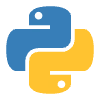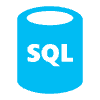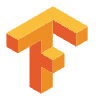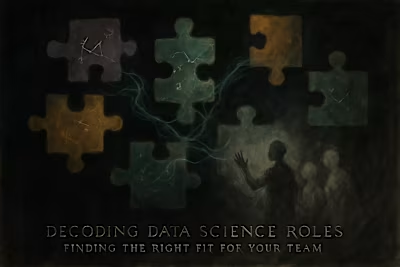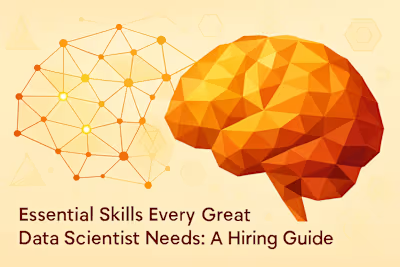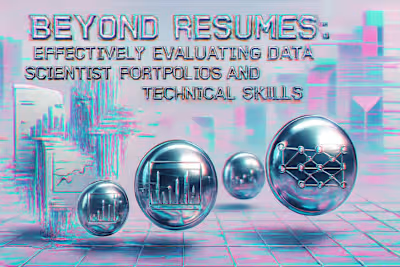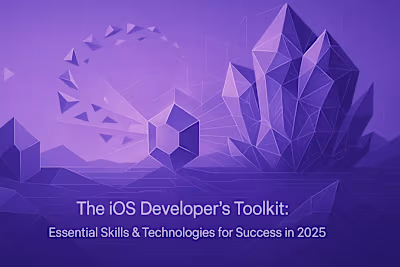Mastering the Data Scientist Interview: Questions and Techniques for Effective Hiring

Mastering the Data Scientist Interview: Questions and Techniques for Effective Hiring
The Goal of the Data Scientist Interview
Beyond Technical Proficiency
Creating a Positive Candidate Experience
Structuring the Data Scientist Interview Process
Initial Screening (HR/Recruiter)
Technical Screening (Hiring Manager/Senior DS)
Case Study / Take-Home Assignment Review
Behavioral and Cultural Fit Interview
Final Interview (Leadership/Stakeholders)
Types of Interview Questions and Examples
Technical Questions
Behavioral Questions (STAR Method)
Case Study Questions
Problem-Solving and Guesstimate Questions
Questions to Assess Soft Skills
Effective Interviewing Techniques
Active Listening and Probing
Creating a Conversational Flow
Providing Necessary Context
Standardizing Questions and Evaluation Rubrics
Allowing Time for Candidate Questions
Evaluating Candidate Responses
Assessing Thought Process vs. Final Answer
Looking for Depth of Understanding
Red Flags to Watch Out For
Conclusion: Making Informed Hiring Decisions
References
Mastering the Data Scientist Interview: Questions and Techniques for Effective Hiring
The Goal of the Data Scientist Interview
Beyond Technical Proficiency
Creating a Positive Candidate Experience
Structuring the Data Scientist Interview Process
Initial Screening (HR/Recruiter)
Technical Screening (Hiring Manager/Senior DS)
Case Study / Take-Home Assignment Review
Behavioral and Cultural Fit Interview
Final Interview (Leadership/Stakeholders)
Types of Interview Questions and Examples
Technical Questions
Behavioral Questions (STAR Method)
Case Study Questions
Problem-Solving and Guesstimate Questions
Questions to Assess Soft Skills
Effective Interviewing Techniques
Active Listening and Probing
Creating a Conversational Flow
Providing Necessary Context
Standardizing Questions and Evaluation Rubrics
Allowing Time for Candidate Questions
Evaluating Candidate Responses
Assessing Thought Process vs. Final Answer
Looking for Depth of Understanding
Red Flags to Watch Out For
Conclusion: Making Informed Hiring Decisions
References
Posted Jun 12, 2025
Learn how to conduct effective data scientist interviews with targeted questions—technical, behavioral, and case studies—to identify top candidates.

